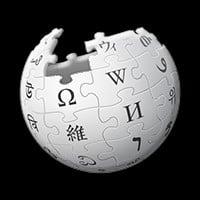Top 10 Ways to Get Good at Jeopardy!
Do you ever wonder why contestants in Jeopardy are able to memorize an enormous number of facts? The answer is simple: memorization and practice. Maybe these two words may not stick right into people's heads. This list goes a bit more on detail on how people usually get good at this seemingly hard show.
Arguably, Wikipedia is one of the best sources for learning various stuff - that's common knowledge, but what some people don't know is that there's a "random article" button that can take you to very interesting pages after a few cycles of monotony.
People are always saying how Wikipedia is unreliable, but they don't know what they're talking about. It's a fantastic source for learning endless facts.
Memorization is not the only thing that should be prioritized - speed and logic play a major role to being decent at the show. Sporcle contains lots of quizzes that cover an abundance of topics - be it geography, television, language, history, or any subject. Do them several hours a day to ensure that enough knowledge is absorbed into your mind. Alternatively you can also use Quizlet which is another good website. You can also test how good your general knowledge is such as the trivia trainer website. If you want to take your zone into places, there are also quiz bowls that you can compete in.
I'm not just saying watch Jeopardy, but watch them religiously, including the previous ones, and whenever a new episode comes up. Not only this will shower you with trivial facts, but it gives you an idea how questions are categorized and how they are asked. This is what many people do when preparing themselves to be good candidates to the show.
It could be practically any book, but books covering trivial facts are usually the best ones. Classic literature such as Shakespeare and even the Bible are recommended as they tend to pop up quite often. Poetry also counts as they tend to pop up occasionally. If you don't have proper study habits, there are books that will better equip you with better techniques in order to effectively study through an ocean of information.
Most of us skim through paragraphs and wonder why do we forget most of the content what we read. Taking notes obviously forces us to pay attention to the detail, thus making it more likely to recall said information. Revising also is the key for long-term memory. Simply put, basic studying habits play a major role on this.
Honestly this seems like a lot of work just to get good at that game. However these aren't bad ideas in themselves.
It's always important to identify what subject are you weak on if you want to be better at grasping clues. If you're strong in history and science but weak in geography, presidents, or any other subject, definitely prioritize on that. Even if it's not your strongest interest, you'll not regret it if you are picked as a good candidate.
Curiosity is something that might be harder to maintain unlike the other tips stated on the list, but you're more likely to have a deeper understanding of a topic. One of the key to maintaining curiosity is: have an open mind, have your interests lead you to other pursuits it may take you. Basically, exploring new subjects you haven't heard before can sometimes spark a lightbulb.
Which is another good medium for gaining knowledge over various subjects.
Flash cards basically aid you for memorizing things. Since Jeopardy is knowledge-based, you will need to absorb a myriad of facts, and flash cards are a great tool for revising. There are websites like quizlet and anki that have pre-loaded sets that are sufficient to equip you with Jeopardy knowledge.
Basically this is a fan-made website that covers over hundreds of thousands of questions in many subjects - stretching from the 80s to the current day. This is also a good alternative as to binge watching episodes in which both methods can keep you up to date.
If you watch enough Jeopardy you can recognize how frequently word clues pop up. Not just the vocabulary, but this is also essential to get a grasp of etymology as you may stumble on some word origin clues, a large part of which come from Latin roots.
Much like wikipedia and books, documentaries have a volume of knowledge in them as well as being entertaining - both of these which are easy to digest. If you're not much of a book reader, documentaries can be a good substitute, but it's usually better to juggle on other methods.